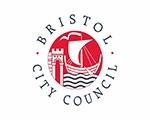Supporting accessibility through BSL translation
Our BSL Translation service offers a flexible approach for organisations to ensure that written, audio or digital content is made accessible for Deaf people, whatever their communication preference.
What we do
What we do
Using our bespoke video recording and editing studios, we add professional quality BSL translation to any written, digital and audio content you create and distribute. All BSL translations are created by our in-house team of experienced and qualified Deaf BSL translators
We can help you translate information such as websites, information videos, social media content, presentations and community messaging to ensure it is fully accessible to Deaf people. All translations are done to your specifications, and to your branding if required. We provide a BSL document translation service alongside our BSL video translation service.
- Website content
- Informational videos
- Social media content
- Webinars
- Podcast & Vlogs
- Animated videos
Why provide BSL translations?
Why provide BSL translations?
With approximately 151,000 BSL users in the UK, it is important to make your content accessible to everyone including your staff, customers and suppliers. Many organisations rely on captions to make their content accessible, and whilst this assists some of the Deaf community, BSL users may find subtitles difficult to follow and inaccessible.
Involve Interpreter enables your organisation to meet statutory requirements for providing access to information for Deaf users. Our BSL translations are suitable for internal and external web use and can be made bespoke to your organisation’s branding.
- The UK has over 150,000 users of British Sign Language
- 87,000 of these people use BSL as their first language, not English
- For many Deaf BSL users, English is their second or third language
- BSL is a visual-gestural language with a distinctive grammar
- The UK Government recognised BSL as a language in March 2003
- In April 2022 The BSL Bill is given Royal Assent and becomes the BSL Act 2022
How we support you
How we support you
Any organisation in any sector can benefit from offering their content in BSL. BSL translation should be part of your Equality, Diversity and Inclusion agenda to ensure equal access to all, including Deaf people.
Involve Interpreter is highly experienced in working across all sectors with many types of organisations, so there’s no doubt we’ll be able to manage your project.
Watch the video below of the type of BSL video translation projects that we’ve worked on and find out more about how we can support your organisation.
Who we've provided BSL translations for
Who we've translated for
Bolton Deaf Society
“Involve Interpreter were excellent, they worked hard to ensure that we had all we needed. Very effective communication, they went above and beyond to deliver videos that met our needs. “
– Ellie, Administrator
Ay-Pe
“We found Involve Interpreter to be an excellent service they met all our requirements. “
– Vicky Blakey, Producer
Metabolic Support
“Involve Interpreter’s service was easy to use and the process was simple, our options were made clear and the end product was high quality.”
– Toni Mees, Community Lead
Wider Thinking
“Involve Interpreter was an excellent service to use. They met our needs very well. “
– Jacqui Bennet, Co Founder
Media Zoo
“Really smooth process. Involve Interpreter were friendly, communicative, helpful and efficient throughout! “
– Charlotte Espley, Senior Producer
Contact us
Contact us
BSL Booking Queries
BSL General Queries
Telephone
0330 088 2412















